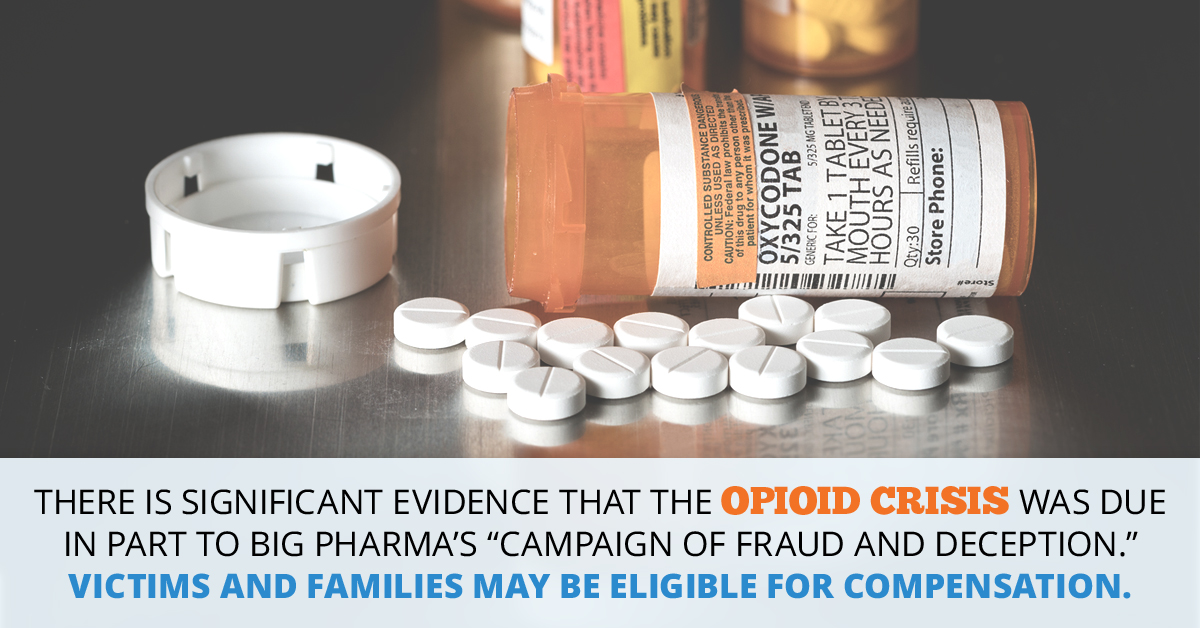Statistics gathered by the National Institute on Drug Abuse show prescriptions for opioids have increased from 76 million in 1991 to 207 million in 2013. Today, numerous big pharmaceutical companies produce dozens of addictive drugs that are contributing to the opioid epidemic:
Oxycodone: Well known drugs like OxyContin, Percocet and Roxicodone contain the drug oxycodone. A number of additional brands also contain oxycodone including: Endocet, OxyIR, Percolone, Dazidox, Endocodone, Oxaydo, Percodan, and Xtampza ER. These powerful drugs have become very common over the past 15-20 years. Purdue Pharma alone has made over $31 billion in revenue from sales of OxyContin.
Fentanyl: Fentanyl is an extremely powerful painkiller. In fact, it is estimated fentanyl is 100 times more powerful than morphine. Insys Therapeutics produces Subsys, a form of fentanyl that is sprayed underneath the tongue. Other brand names include Abstral, Actiq, Duragesic, Fentora and Onsolis.
Hydrocodone: Vicodin, Lortab, Norco and Lorcet contain hydrocodone. Additional brands include, Anexsia, Ceta Plus, Hycet, Maxidone, Stagesic and Zydone. These drugs also contain acetaminophen, which carries a risk of drug-induced hepatotoxicity (liver damage).
Hydromorphone: Drugs such as Dilaudid and Exalgo contain hydromorphone, which is approximately five times as powerful as oxycodone. It is sometimes prescribed in extended-release form for constant treatment of pain.
Oxymorphone: This narcotic is often used in conjunction with anesthesia and to treat anxiety. Endo Pharmaceuticals produces Opana and Opana ER, which contain oxymorphone.


